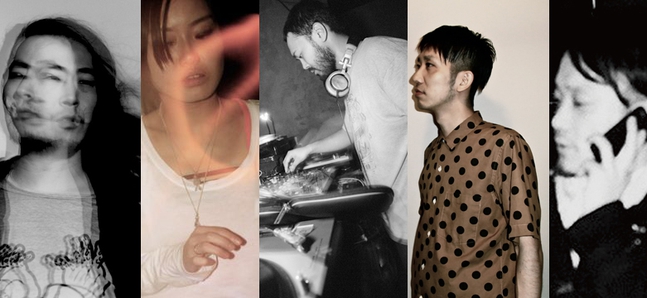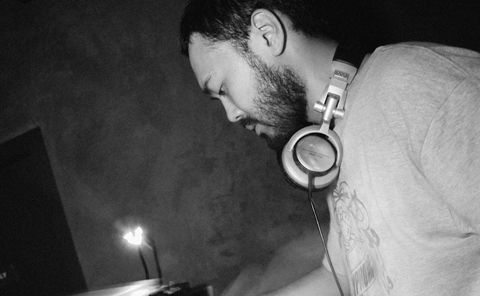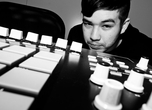SonarSound Tokyo: The Japanese acts
Homegrown producers and beatmakers strut their stuff at the electronica fest

Posted: Tue Apr 17 2012
Electronica fans are in for a brain overload this weekend, as SonarSound Tokyo 2012 unfurls for two days at bayside club Studio Coast in Shin-Kiba. But while it's the overseas visitors like Squarepusher, Clark and The Cinematic Orchestra who are grabbing the most attention, the event also serves as a showcase for some of Japan's most adept laptop merchants and knob twiddlers. Some, like Daisuke Tanabe and Sauce81, are graduates of the Red Bull Music Academy, a globe-trotting series of intensive music workshops and festivals sponsored by the makers of the jitter-inducing energy drink. Elsewhere, you can look forward to a wide range of music, running from the jazzy house vibes of Ken Ishii's Metropolitan Harmonic Formulas project to Ryoichi Kurokawa's intense audio-visual salvoes and Broken Haze's hyperactive beat mashing.
Looking for a way to keep ourselves occupied while we counted down the days until the weekend, Time Out got in touch with five of the Japanese producers appearing at SonarSound Tokyo to talk about beats, making it overseas, and the joys of butterflies...

Sauce81
Nobuyuki Suzuki took part in the Red Bull Music Academy in 2008, and started the Cosmopolyphonic Radio podcast series the following year with fellow producers RLP and Kez YM. His remix of Julien Dyne's 'Who Are You' is available via iTunes, with a vinyl and CD release due on Wonderful Noise Productions next month.
What's your background in music? We heard that you used to be in a rock band…
I grew up in the US when I was a little kid, and I picked up English naturally, which led me to American/British music (generally with English lyrics). I came back to Japan when I was 12 years old and got an electric guitar and formed an alternative rock/punk band. At the same time, I was into funk, soul, ska/reggae and acid jazz as well, so we were wanting to do something like The Clash meets Rage Against The Machine, or some of the early Cornelius works. I moved to Chiba when I was 18 for university, where I started listening to hip hop, jazz, electronica, experimental and world music, and started making beats with machines. A few years after graduating from school, I joined a choir that sang a lot of gospel music, which gave me a chance to look deeper into my musical roots.
What was the first music that you remember really connecting with?
The first music that I got into was basically Japanese pop and things in the charts, but I was always interested in the synthesizers, samplers and sequencers that were used in that music. When I started playing the guitar, I started getting into '60s and '70s music, and was fascinated by the guitar riffs of Cream (Eric Clapton) and Led Zeppelin (Jimmy Page).
It's been a few years since you took part in the Red Bull Music Academy. What do you think you'd be doing now if you hadn't done it?
I might not be doing music – and even if I was, it wouldn't be as good, and I wouldn't be as motivated as I am now.
If you were allowed to play someone just one of your tracks, which one would you pick and why?
I'd play the newest music in my computer. Whenever I make a new track I try out something new, so it would be the closest to how I felt right now. But if it's gotta be something accessible, it would be 'Spaceshi*t!' [on the 2010 Cosmopolyphonic compilation] or the latest remix I did for Julien Dyne from New Zealand.
What was your motivation for starting Cosmopolyphonic Radio?
For me, it was MySpace and RBMA. Connecting with a bunch of producers on MySpace was really inspiring, while I met so many amazing people at RBMA too. And of course, the internet radio stations and podcasts that supported newcomers were very inspiring. I knew that there weren't many Japanese producers who were adapting to the English-based social media, so I thought it'd be a nice platform to introduce Japanese producers to the world in English, and foreign producers to Japan in Japanese.
You have a reputation as one of the most supportive people in the scene. Would you rather see other people do well than yourself?
First of all, I think music is about an exchange of minds. By sharing music from up-and-coming producers on podcasts and at parties, I hope to support them and cultivate new music listeners at the same time. Artists, musicians and producers become successful when they get a lot of listeners and fans, but to make that happen there have to be enough people that are interested in music in the first place. When we started Cosmopolyphonic in 2009, Japan was a bit behind on new music (both creators and listeners) coming from the internet, so we had to give a heads-up to get people interested in new music and artists. It's similar to promoting, but for me it's more about supporting and cultivating – or, as KRS-One says, 'Edutainment'. Anyway... yes, I would really like to be as successful as the people that we've been supporting, or even more so. That said, the main thing is not about becoming famous: it's that the more you get noticed, the further your words spread, which means that you can support the music that you believe in.
What do you think are the main barriers for Japanese artists to succeed overseas? Is it mostly just a language thing?
Language is definitely the biggest barrier, and distance from other countries is another thing. The language barrier makes overseas countries feel even further away mentally. From my point of view, growing up in an island country without many foreigners means that people don't have many chances to communicate and understand other cultures. So people are especially shy and passive about communicating with foreigners, because they're not confident about it. Even if they can't speak English, though, many Japanese artists need to step out of their comfort zones and be more active and aggressive to succeed in the world. Nowadays, if you can speak English you can connect with the world so easily through the internet and get so much more information than you can from just Japanese websites.
What's good about the Tokyo scene at the moment?
It's finally getting up to date. Before 2009, the lineups you saw at shows or festivals and in magazines had been almost the same for 5-10 years. Also, a lot of music websites have become popular.
What's bad about the Tokyo scene at the moment?
People don't go out. I guess it's because of a variety of reasons, like expensive entry charges, feeling satisfied just watching YouTube, getting worn out from working so much, and so on. Also, many people in the scene seem to be conservative. Another serious problem, in Osaka and other areas, is that the clubs are being investigated and banned under an outdated law, which is totally ridiculous. Does the world know that it's illegal to dance after midnight (or 1am, depending on the area) in Japan? It needs a serious update.
Who's worth checking out at SonarSound this year?
Oh, I'm totally excited to see Jesse Boykins III. He's gonna be performing on Sunday at SonarDome, right after my live set. Actually, the SonarDome is what I'll be checking out most of the time, plus Seiho from Osaka and Jealousguy from Sapporo, and the RBMA family – Dorian Concept and Africa Hitech – for sure.
Sauce81 plays at SonarSound Tokyo 2012, Studio Coast, April 22
soundcloud.com/sauce81 | cosmopolyphonic.com
Twitter: @sauce81
Tweets
- About Us |
- Work for Time Out |
- Send us info |
- Advertising |
- Mobile edition |
- Terms & Conditions |
- Privacy policy |
- Contact Us
Copyright © 2014 Time Out Tokyo



















Add your comment